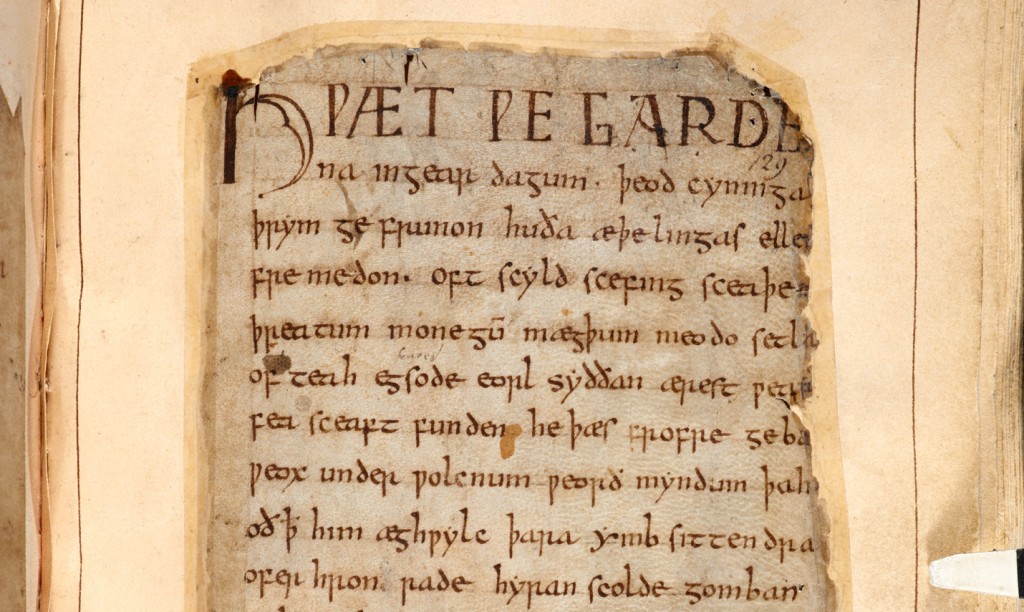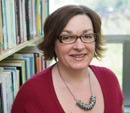Page 17 • (559 results in 0.024 seconds)
-
20 semester hours (a minimum of 12 semester hours of upper division) to include: HGST 200 (4) HIST 360 (4) Elective courses (12 semester hours, a minimum of 8 hours upper division) No more than 12
200 : Introduction to Holocaust and Genocide Studies - VW, GE This multidisciplinary class examines the Holocaust and selected examples of genocide and systematic mass violence to probe the intersections of dehumanization, violent oppression, cultural destruction, and war in the last two centuries. Voices of resisters and case studies from the U.S. are included. (4) HGST 287 : Special Topics in Holocaust & Genocide Studies To provide undergraduate students with new, one-time, and developing
-
The following are PLU’s annual events. Actual dates are published at www.plu.edu/calendar. Events are subject to change. For more information call us at 253-535-7450 or email to events@plu.edu.
Alumni and Constituent Relations100NovemberPI, PS Mary Baker Russell Scholars Concert Music DepartmentNovemberPI Svare-Toven Endowed Professorship Lecture Division of Humanities (Claudia Bergeson contact)November Annual Science LectureDivision of Natural Sciences400NovemberPI Veterans Day Celebration PLUSC, coordinated w/Military Outreach (noon or at chapel if MWF)NovemberPI Veterans Football Game Director of Military OutreachNovemberPI, PS Sankta Lucia FestScandinavian Cultural Center30DecemberPI
-
Dr. Brenda Ihssen Byzantine conceptions of Jesus: the Christ of council, court, and monk Byzantine perspectives offer westerners a contrast to their cherished assumptions about Jesus.
inform Christian discipleship in the None Zone than its more orthodox alternatives. Dr. Peterson teaches humanities in Matteo Ricci College at Seattle University5:00 P.M. Reception and Dinner Cost: $30 per person for a (3 course meal with wine and beer service) There is limited seating. In order to guarantee your dinner reservation, please make out a check to “PLU”. Your check must be received no later than Thursday, September 19, 2013. Please send this check to Cynthia Givens, Division of
-
Biology Courses Take the following two introductory biology courses: BIOL 225: Molecules, Cells and Organisms BIOL 226: Genes, Evolution, Diversity and Ecology Often veterinary schools require you
English requirement is met by taking courses that veterinary schools would recognize as writing or literature courses. Courses in the Humanities, Social Sciences and Arts The majority of veterinary schools have formal requirements for courses in social sciences, humanities and arts. However, often these requirements are waived if the applicant has or will be earning a BA/BS degree. A course in oral communication, either interpersonal or group communication or public speaking, is often
-
Biology Courses Take the following two introductory biology courses: BIOL 225: Molecules, Cells and Organisms BIOL 226: Genes, Evolution, Diversity and Ecology Often veterinary schools require you
English requirement is met by taking courses that veterinary schools would recognize as writing or literature courses. Courses in the Humanities, Social Sciences and Arts The majority of veterinary schools have formal requirements for courses in social sciences, humanities and arts. However, often these requirements are waived if the applicant has or will be earning a BA/BS degree. A course in oral communication, either interpersonal or group communication or public speaking, is often
-
After millenniums of sex and centuries of poetry, the love poem as understood by Shakespeare and Donne, and by Oxford undergraduates – the true-life confessions of the poet in love, immortalizing
new evidence and new ways of understanding. Classics continues to contribute to all these disciplines by reshaping and sometimes redefining long-held assumptions about antiquity and humanity. And the Classics’s methodologies are also innovative: Classics has been a pioneering discipline in the Digital Humanities and computational linguistics, for example, the Perseus Project, the Packard Humanities Institute, and various 3D reconstructions of Roman architecture. Classics at PLU Classics at PLU
-

You may have heard professors say that they still feel like students, learning every day. But Visiting Instructor of Chinese Xi Zhu is a true embodiment of this idea. You may have heard professors say that they still feel like students, learning every day. But…
to PLU’s Humanities programs. This is one reason why teaching a literature course at PLU is such an exciting opportunity for Professor Zhu. With Chinese literature, students have the chance to take their linguistic knowledge and use it to understand and think critically about the original Chinese literature alongside the English translation. His students then have the chance to take what he thinks of as the most important step: “forming their own opinions.” Zhu has also been struck by the
-

As a professor in the Department of Languages and Literature, Dr. Collin Brown teaches Norwegian language and Nordic studies at Pacific Lutheran University. However, his love for his work runs so deep, he also started and manages a club called “The Dead Languages Society.” As…
often so very chaotic and painful? That to me is important.” Why the Digital Humanities Lab Impacts UsSharing Passion for Scholarship Read Previous Sharing Passion for Scholarship: The Kelmer Roe Fellowships in the Humanities Read Next Connection through Translation LATEST POSTS Gaps and Gifts May 26, 2022 Academic Animals: Making Nonhuman Creatures Matter in Universities May 26, 2022 Gendered Tongues: Issues of Gender in the Foreign Language Classroom May 26, 2022 Introduction May 26, 2022
-

Professor of English | Department of English | marcusls@plu.edu | 253-535-7312 | Lisa Marcus joined the English department after completing a PhD in English at Rutgers University in 1995. She has been active in campus-wide diversity education and advocacy; she chaired the Gender, Sexuality, and Race Studies program for many years, and is a founding member of PLU’s Holocaust and Genocide Studies Program. She is deeply committed to first year education and regularly teaches a popular writing seminar on Banned Books for the First Year Experience Program. Her constellation of courses in the English department include: The Holocaust in the American Literary Imagination; American Literature 1914-45: Race, Sex, and War; Anne Frank as a Holocaust Icon; a senior seminar on History & Memory in US Slavery and Holocaust texts; an English Studies course on Gendered Literacy; Feminist Approaches to Literature; Women Writers and the Body Politic; and a first-year seminar on Holocaust Literature developed with Professor Rona Kaufman. Lisa also regularly teaches courses in the Holocaust and Genocide Studies and Gender, Sexuality, and Race Studies Programs. Her current research project is Snapshots of a Daughter: A Feminist Genealogy, a critical exploration of letters between Marcus’s mother and the poet Adrienne Rich, 1979-82. You can read a poem she published about visiting Auschwitz here. .
Teaching Excellence Award, PLU Center for Teaching and Learning, 2001 Graves Award in the Humanities, 1998 Biography Lisa Marcus joined the English department after completing a PhD in English at Rutgers University in 1995. She has been active in campus-wide diversity education and advocacy; she chaired the Gender, Sexuality, and Race Studies program for many years, and is a founding member of PLU’s Holocaust and Genocide Studies Program. She is deeply committed to first year education and regularly
-

Professor of English | Gender, Sexuality, and Race Studies | marcusls@plu.edu | 253-535-7312 | Lisa Marcus joined the English department after completing a PhD in English at Rutgers University in 1995. She has been active in campus-wide diversity education and advocacy; she chaired the Gender, Sexuality, and Race Studies program for many years, and is a founding member of PLU’s Holocaust and Genocide Studies Program. She is deeply committed to first year education and regularly teaches a popular writing seminar on Banned Books for the First Year Experience Program. Her constellation of courses in the English department include: The Holocaust in the American Literary Imagination; American Literature 1914-45: Race, Sex, and War; Anne Frank as a Holocaust Icon; a senior seminar on History & Memory in US Slavery and Holocaust texts; an English Studies course on Gendered Literacy; Feminist Approaches to Literature; Women Writers and the Body Politic; and a first-year seminar on Holocaust Literature developed with Professor Rona Kaufman. Lisa also regularly teaches courses in the Holocaust and Genocide Studies and Gender, Sexuality, and Race Studies Programs. Her current research project is Snapshots of a Daughter: A Feminist Genealogy, a critical exploration of letters between Marcus’s mother and the poet Adrienne Rich, 1979-82. You can read a poem she published about visiting Auschwitz here. .
Teaching Excellence Award, PLU Center for Teaching and Learning, 2001 Graves Award in the Humanities, 1998 Biography Lisa Marcus joined the English department after completing a PhD in English at Rutgers University in 1995. She has been active in campus-wide diversity education and advocacy; she chaired the Gender, Sexuality, and Race Studies program for many years, and is a founding member of PLU’s Holocaust and Genocide Studies Program. She is deeply committed to first year education and regularly
Do you have any feedback for us? If so, feel free to use our Feedback Form.


